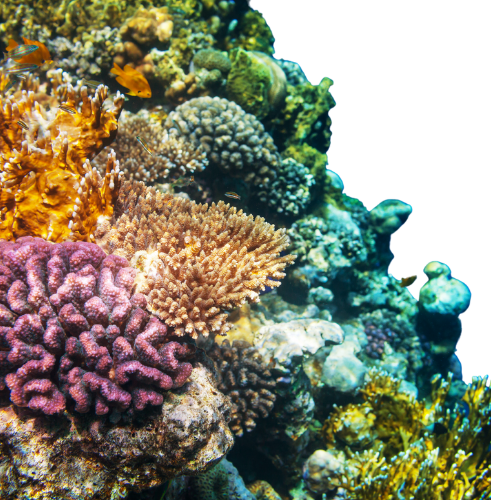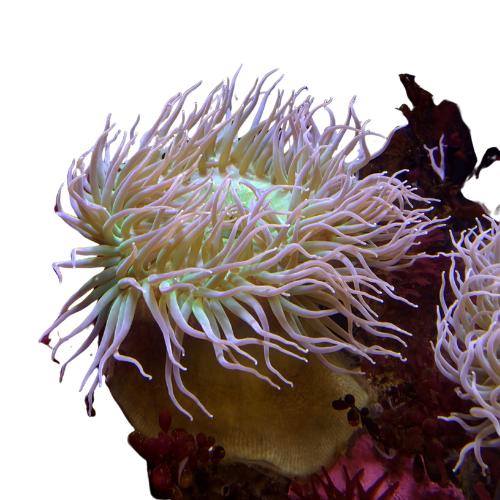Corals/invertebrates
Corals
Scientific Name: Varies by species (e.g., Acropora, Zoanthus, Favia).
Pros:
- Adds vibrant colors and life to aquariums.
- Provides shelter and habitats for small marine organisms.
- Helps create a natural reef environment for fish.
Cons:
- Sensitive to water parameters (lighting, flow, pH, and nutrients).
- Some corals are aggressive and can harm neighbors with sweeper tentacles.
- Growth can be slow, and fragging requires skill.
Difficulty of Care Needed: Varies; beginner corals (like Zoanthids and Mushrooms) are easy, while SPS (Small Polyp Stony) corals require advanced care.
Quick Facts: Corals are marine animals, not plants, and they rely on symbiotic algae called zooxanthellae for energy through photosynthesis. They can also "eat" by capturing plankton with their tentacles. Some corals glow under blue lights due to fluorescent proteins, adding a mesmerizing effect to reef tanks.


Invertebrates
Scientific Name: Varies by species (e.g., Lysmata amboinensis for Cleaner Shrimp, Turbo spp. for Snails).
Pros:
- Act as natural cleaners, helping control algae and detritus.
- Adds diversity and movement to the tank.
- Many species, like shrimps and crabs, exhibit fascinating behaviors.
Cons:
- Some species may eat corals or harm fish (e.g., certain crabs and predatory starfish).
- Many are sensitive to changes in water quality.
- Some species require a highly specialized diet.
Difficulty of Care Needed: Generally easy to moderate, but species like anemones and some starfish can be challenging for beginners.
Quick Facts: Invertebrates are a vital part of reef ecosystems, playing roles such as scavenging, filter-feeding, and even hosting symbiotic relationships (e.g., anemones and clownfish). Some, like Cleaner Shrimp, actively "groom" fish to remove parasites, a behavior that’s both practical and fun to observe.
